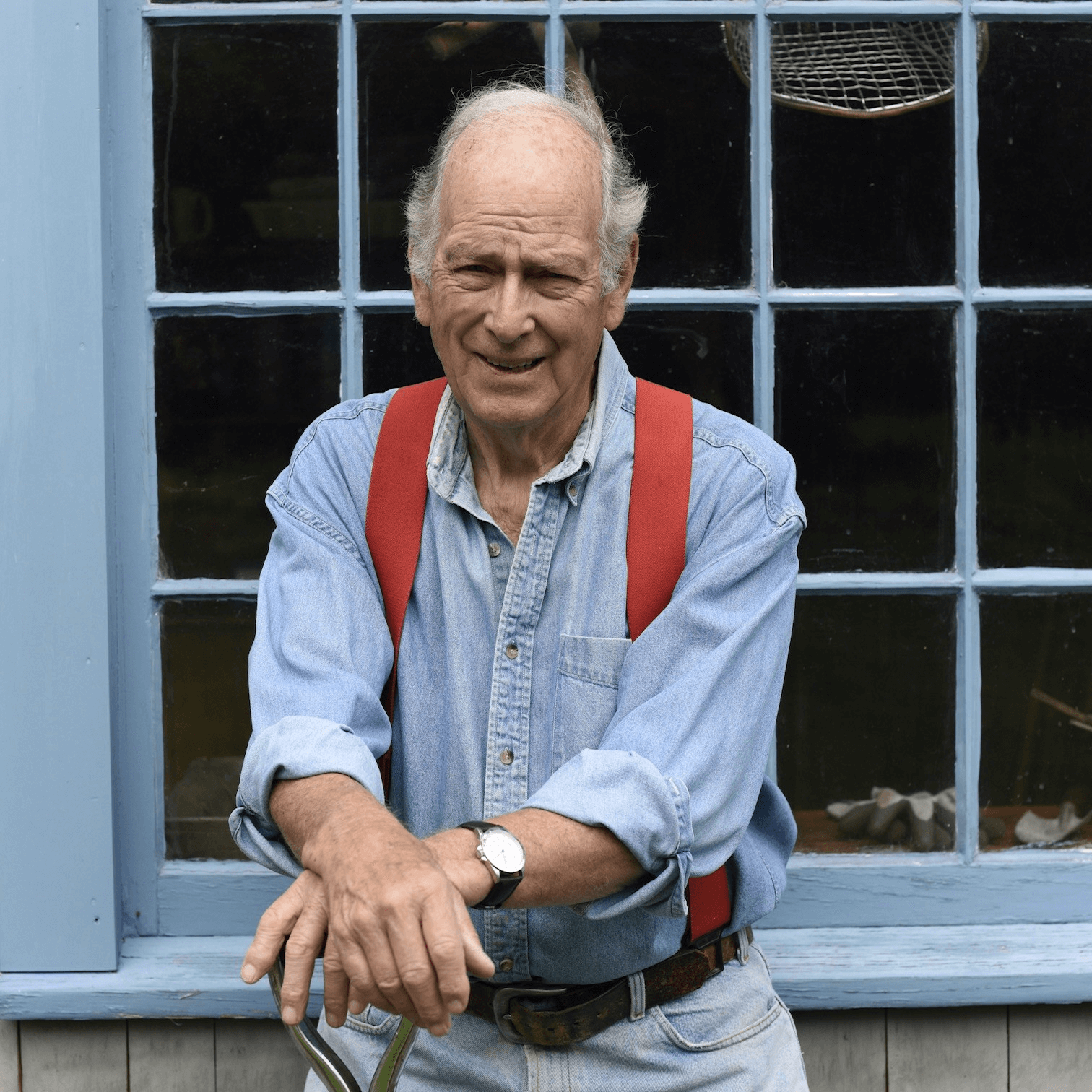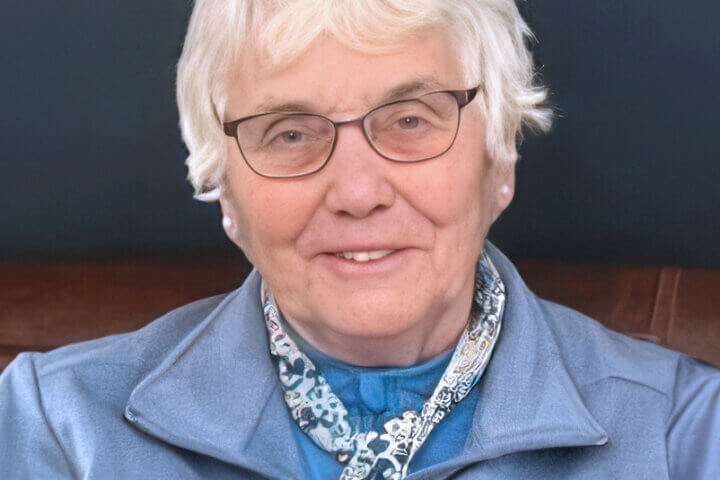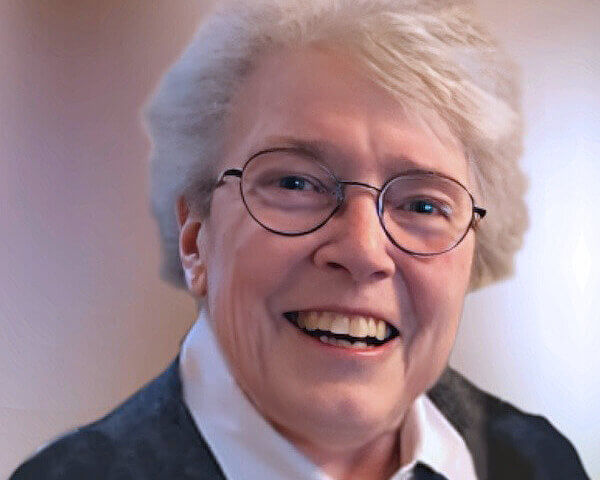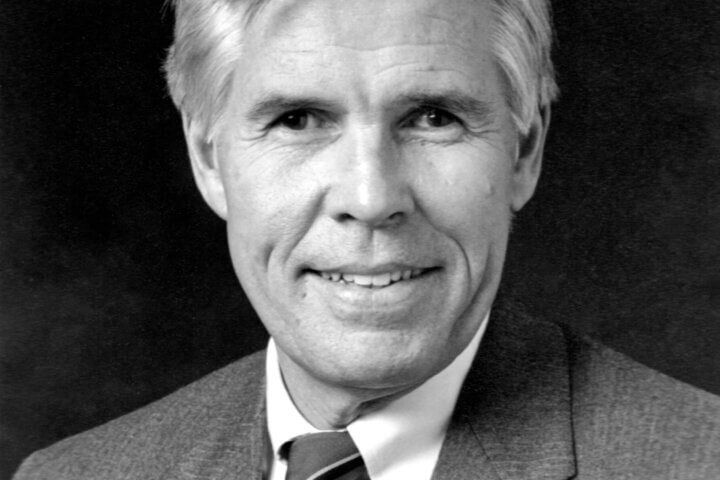Russell Frederick Morash, 88, died after a brief illness on June 19, 2024, surrounded by members of his family.
Morash was born to Naomi Grace Lingley and his namesake father in Belmont, and raised in nearby Lexington, a twin with David, an older brother to Ruth, and a Yankee through and through. A childhood spanning the Depression and World War II gave him a predisposition towards thrift, but his true motivating spirit was his deep and abiding curiosity. He was the twin who reliably escaped the playpen to be found exploring the yard and nearby woods. He was the 1957 Boston University theater graduate who chose the new field of television over a job stage-managing a Samuel Beckett play in New York. And he was the father who spent the bulk of a recent afternoon figuring out the complexities of a European toilet paper holder before installing it at his elder daughter Vicki’s new home.
He cut his TV teeth at Boston’s WGBH public station by producing and directing a wide variety of shows, including a live children’s show called “Ruth Ann’s Camp”, the public affairs series “The Advocates,” “MIT Science Reporter,” and the landmark James Brown concert, broadcast live the night after the Rev. Martin Luther King Jr.’s assassination.
But his unending fascination with the way things work led him to his true calling, creating the shows that earned him the informal title of “father of how-to television.” “The French Chef” (1963) let others in on the joys of Julia Child’s cooking and lead to a 40-year partnership and friendship between director and chef. “The Victory Garden” (1975) satisfied his own urge to understand the ways of gardening after starting a failed one in his own backyard. Marian, his wife of 66 years, recalled him coming home from work to find their very first crop of broccoli decimated by a local woodchuck. “Russ said, ‘I don’t know what I’m doing, but I’m going to learn, and I bet other people will want to as well.’”
The same went for “This Old House” (1979), based on his own experience renovating the couple’s first house in Lexington. His forebears had been shipwrights and housebuilders, and Russ was determined to learn the kind of craftsmanship he’d been raised to respect. When he spotted Norm Abram working on a friend’s house, he took note of “the smallest scrap pile I’d ever seen,” as Russ recalled, indicating care and forethought, not to mention Yankee thrift, and soon Norm was on the crew. Later, Norm got his own show, “The New Yankee Workshop” (1989), created by Russ to demystify furniture making.
Spotting potential was a Morash strength. His choice of show hosts and on-air talent was superb, and he drew out their natural teaching abilities with his own unerring bent towards clarity, precision, and lack of pretense. Craftspeople would share their skills as the camera moved seamlessly through the set, which quickly left the confines of the studio. “My instinct,” he told the New York Times in 1983, “is to simplify the process of making a television program until we are down to the bare essentials. That means taking what’s out there and adapting it to our purposes — using the real world as a backdrop.” Although his career began in a time of massive pedestal-mounted equipment, he relentlessly adopted technological innovations that cut the tether and allowed the camera and talent to move freely. He paired that flexibility with his curiosity to travel the world, from a prefab house factory in Japan to an exclusive salmon stream in Scotland to the top of the north tower of the Golden Gate Bridge, to name only a few of the behind-the-ropes locations he took his crews. Along the way, he picked up 16 Emmys, including one in 2014 for Lifetime Achievement.
Happy though he was with his professional accomplishments, his proudest feelings were for the family that he and Marian built. “He was involved in our lives and always there,” daughter Kate says. “He expected you to be prepared and to take tasks seriously, to be resourceful and figure things out.” “If you’re going to shovel the driveway,” adds Vicki, “shovel it right.”
He deeply admired Marian as a mother and a chef, and had her skills to thank for bringing him to his beloved Nantucket, where the couple bought a second home after Marian was recruited to help launch the Straight Wharf Restaurant in 1975. He spent many happy days there gardening and renovating and being “Papa” to those who were always described in his official biographies as his “five exceptional grandchildren.”
“Russ was the ultimate creator,” says Eric Thorkilsen, former CEO of This Old House Ventures, founded after AOL Time-Warner purchased the show from public television in 2001. “From the iconic media brands he imagined and built, the careers and lives of those he chose to be a part of that, to the gardens in Lexington and Nantucket that he nurtured with joy and care — for all of that I admired him greatly. Most of all, however, his greatest creation was the life, family, and marriage he created with Marian. Here’s to you, pal. You did it right.”
Russ is survived by his wife, Marian Morash; daughters Victoria Evarts and husband Thomas Evarts and Kate Cohen and husband Adam Cohen; grandchildren Sophie E. Lockwood, Alexandra E. Ott, Russell Jack Cohen, Remi J. Evarts, and Madeleine H. Cohen; his beloved three great-grandchildren and his nephew, Jeffrey Morash; and his brother David Morash and sister Ruth Daniels.
A private burial will be held at Mount Auburn Cemetery in Cambridge with a memorial service planned for this autumn.






